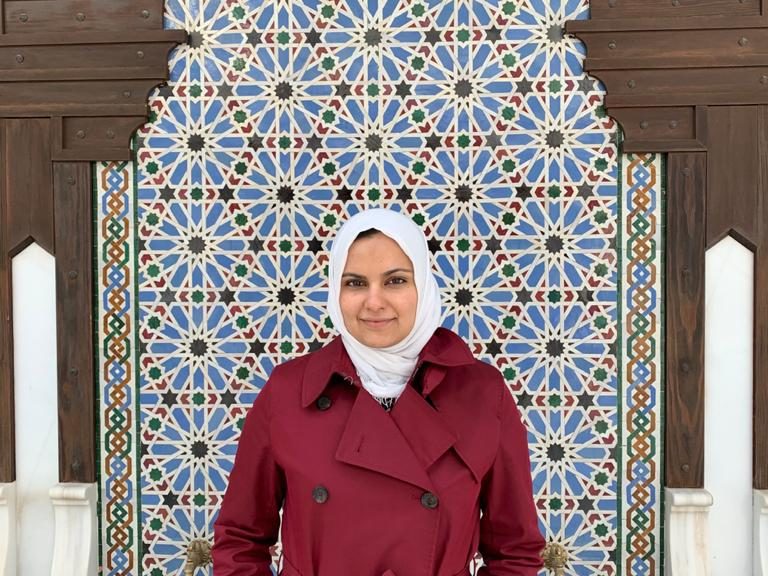Georgetown Professor’s New Book Gives Context and Cross Discipline Insight into the Thought of one of the Most Influential Classical Muslim Scholars

In her new book, “Law and Politics under the Abbasids: An Intellectual Portrait of al-Juwayni” (Cambridge 2019), Sohaira Siddiqui Associate Professor at Qatar Foundation partner university Georgetown University in Qatar, illuminates the thought of the 11th century scholar, Abu Ma’ali al-Juwayni, whose work has not been sufficiently been explored in Western academia. In part, this gap is due to the prominence of his more famous student Imam al-Ghazali. In her book, Professor Siddiqui navigates several of al-Juwayni’s texts to locate the key theological, legal and practical questions that animated his thought. By engaging with multiple works, she presents a cross-disciplinary analysis that weaves numerous disciplines in Islamic intellectual thought together, including theology, political thought, and law.
For Siddiqui, inspiration for studying al-Juwayni arose out of a more fundamental curiosity about the place of Islamic law in the practice and imagination of Muslims today. What drew her to al-Juwayni was his political treatise, “Ghiyath al-Umam,” in which he conceptualizes the absence of the Calipha and the continuity of society. His reflections on the absence of the Calipha comes at the end of a longer engagement with political contingencies in which he discusses both the ideal political ruler, and what communities should do when an ideal leader is not found. In the absence of the Calipha, al-Juwayni reimagines what role the Shari’a plays in communities. On the basis of al-Juwayni’s arguments, Siddiqui reconceptualizes how to think about the Shari’a and notes that, “his [al-Juwayni’s] conversation about the death of Shari’a lets us think in a new way about the life of the sharia today.”
Beyond the specific arguments of the book, Siddiqui seeks to make contributions to the discipline of Islamic Studies more broadly. She argues that scholars within Islamic Studies should move beyond their disciplinary silos in Islamic law, Islamic political thought, Islamic theology, to see how ideas within these fields are interrelated. She notes that classical Muslim scholars, much like al-Juwayni, wrote in multiple disciplines, therefore their works should be addressed in a multidisciplinary manner. This, indeed, is one of Siddiqui’s greatest hopes for the outcomes of her book. “I want scholars to start thinking about how epistemology, law, and political thought are intertwined,” she explained, noting that she hopes readers apply lessons learned about the intellectual project of al-Juwayni to their own discipline. “I hope that from reading this book scholars start to think about ways in which they can move beyond the text and time period in which they work to really think horizontally about how these issues are emerging and how they are constructed.”
A recent interview with Siddiqui on the book is freely available online. In the interview, SherAli Tareen, Associate Professor of Religious Studies at Franklin and Marshall College, calls Siddiqui’s book “intimidatingly brilliant,” her analysis “masterful,” “profound” and “astonishingly lucid” and recommends it for teaching across a range of disciplines. Siddiqui is also the author of “Locating the Shari’a: Legal Fluidity in Theory, History and Practice” (Brill, 2019), and numerous articles in top tier academic journals.